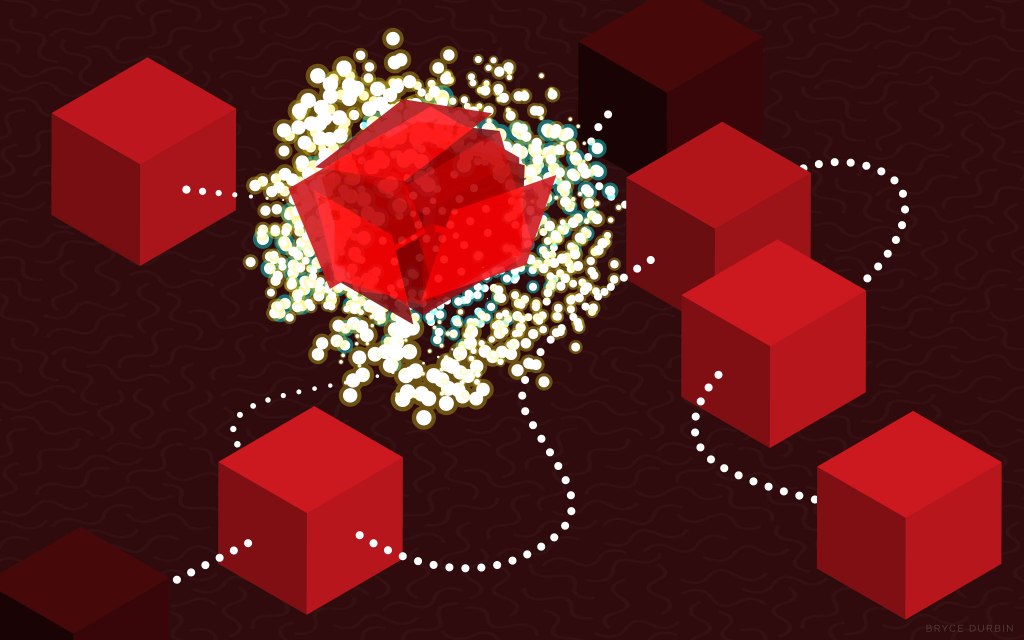Florian Graillot
More posts from Florian Graillot
To process a transaction, you need first to make sure the sender owns the asset he wants to transfer, and make sure he will not trade it twice.
In the blockchain, information is stored in blocks that record all transactions ever done through the network. Hence, it allows validating both the existence of assets to be traded and ownership.
To avoid double spending, the technology requests several nodes to agree on a transaction to process it. A validation is also artificially difficult to achieve: miners leverage computer power to solve complex cryptographic problems (the proof-of-work). Every time a problem is cracked, a block is added to the chain, and all the transactions it includes are thus validated. The updated chain, including the new block, is shared with other nodes and becomes the new reference; this process leverages cryptography to prevent duplicate transactions.
New blocks issued are also linked to previous ones, so that it is almost impossible to go back on a transaction. This technology addresses all the issues to validate a transaction, so that processing one doesn’t request a third-party any more: the network replaces institutions.
Now, transferring assets through the blockchain is done almost in real time as it takes around 10 minutes to add a new block to the ledger. The complexity of the math problem to solve is increasing with time and computer power. And it is cheaper than ever as miners get rewarded at around 0.0001 Bitcoin (BTC) every time they process a transaction. This is a game changer.
Beyond Bitcoin, Several Use Cases Are Explored
Of course, Bitcoin was the first use case of the blockchain, and the most famous one. Its founder developed this technology to process money transfers and to solve many cryptocurrency issues. Instead of having a central bank that issues money, and banks to validate financial transactions, Bitcoin relies on the blockchain. Abra, for instance, is leveraging this technology to ease money transfers across borders — they rely on Bitcoin to disrupt the remittance market.
But beyond this monetary use, many applications of the blockchain could be explored. And startups are already working on this technology to disrupt industries. Indeed, every time a third-party is involved to process a transaction, the blockchain could replace it.
Overstock developed “tØ” a public equities trading platform based on the blockchain. And in the same area, NASDAQ announced a partnership with Chain a few months ago: They are working on disrupting shares trading by using the blockchain.
More generally, financial institutions, like Goldman Sachs or Barclays are teaming up with the startup R3 to create a new framework for the markets based on the blockchain.
A few startups are going even further, and plan to use the blockchain to trade physical assets. Thus, Bitproof and Blocknotary are disrupting contracts by recording them on the blockchain; instead of completing your house sale in front of a notary, just store the contract on the public ledger.
Colu, on its side, is using the blockchain to manage property through digital tokens that can unlock either online services or physical objects.
This also could be applied to intellectual property. For instance, Verisart is using this decentralized technology to verify art pieces. It encodes copyrights of artwork and records them on the blockchain. ProofOfExistence, as well, is leveraging the public ledger to keep track of files you have created.
To go further, the blockchain could be used to identify people. ShoCard encodes and stores personal information regarding identity. It could enable smart contracts, as well: As soon as terms are met, the contract is processed, thanks to the decentralized infrastructure. IBM is currently working on this application. It also unveiled a partnership with Samsung ADEPT, a proof of concept using the blockchain in the Internet of Things area.
Risks And Threats
But to go ahead, the blockchain technology needs to fix a few issues. Starting with the network capacity. As we saw earlier, a block is added to the ledger every 10 minutes. Due to the limited size of a block (1MB), the network is restricted to processing 7 transactions per second (tps). This is way far from what VISA can handle, with up to 56,000 tps.
A debate around the block size appeared a few weeks ago and a fork happened in the blockchain: A few miners started increasing block size to 8MB. And this sized is scheduled to double every two years. To solve this debate, if the Bitcoin XT reaches 75 percent of the network, the network will entirely switch to the new block size. More generally, the debate is around whether the blockchain should process a huge amount of transactions for a small transaction fee, or a small number of transactions at a higher rate.
Personal computers in 1975, the Internet in 1993 and Bitcoin in 2014. Marc Andreessen
Security is also a threat, as a few Bitcoin trading platforms were hacked or closed, making millions of BTC disappear. This also could happen with assets that could be traded over the blockchain.
These issues highlight the need to have governance, which is a challenge for a decentralized network. But stability is a key success factor for the technology to expand widely.
If Bitcoin has been everywhere for years, its underlying technology — the blockchain — might be the most interesting and disruptive part of it. Indeed, for the first time in history, the technology seems to be able to replace institutions. When the decentralized network replaces third-parties, there is a wide range of potential use cases, as it eases and reduces the cost of transactions. Startups are now accelerating on this technology, and famous VC investors, like Marc Andreessen, even compare it to previous tech revolutions: “Personal computers in 1975, the Internet in 1993 and Bitcoin in 2014.”































Comment